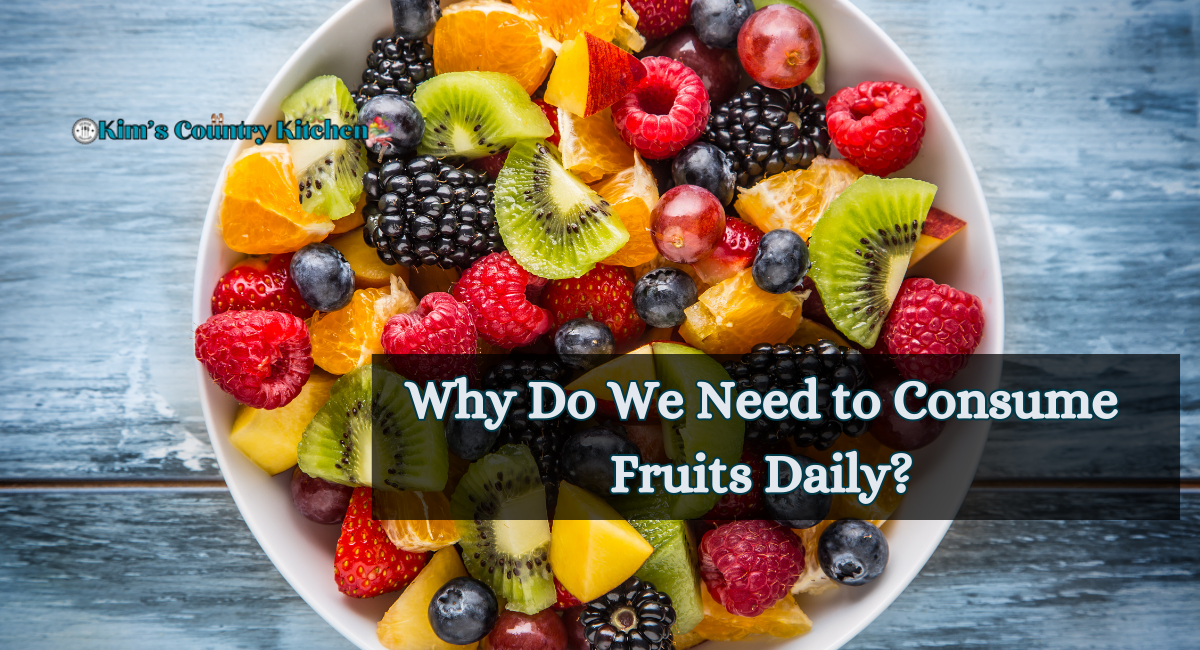You already know that fruits and vegetables are healthy for you, but you may not be aware of their exact benefits.
A meal full of vegetables and fruits can help you keep a healthy weight and lower your risk of type 2 diabetes and heart disease. Fruits and veggies also help keep your skin, eyes, and bones in good shape. They strengthen the immune system and lower the chance of getting stomach problems and some cancers.
Nutrient Facts Of Fruits
Fruits, the colorful jewels of nature, are a delectable delicacy and a nutrient powerhouse. Full of vitamins, minerals, antioxidants, and dietary fiber, they contribute to overall health in numerous ways.
Vitamin C, abundant in citrus fruits such as oranges and strawberries, bolsters the immune system and promotes wound healing. Bananas and avocados contain potassium, which regulates fluid balance and helps maintain optimal blood pressure.
Antioxidants, including anthocyanins in berries and lycopene in tomatoes, combat oxidative stress and lower the risk of chronic diseases. Apples and pears contain dietary fiber, which promotes digestive health and aids in glucose and cholesterol management.
Fruits contain naturally occurring sugars, such as fructose and fiber, which delays sugar absorption and prevents blood sugar spikes. Choosing nutrient-dense fruits with vibrant hues increases the antioxidant and vitamin content.
While fruits provide many nutrients, moderation is essential, particularly regarding high-sugar options such as mangoes and grapes. One juicy morsel of fruit can lead to a healthier, more vibrant lifestyle.
Why Do We Need to Consume Fruits Daily?
Here are the reasons why we need to consume fruits daily:
- Fruits and vegetables are good sources of vitamins and minerals. There is no greater source of vitamins A, C, and E, magnesium, zinc, phosphorous, and folic acid than fruits and vegetables. Eat abundant avocados, sweet potatoes, bananas, prunes, and even tomato paste purée to obtain potassium, one of the most essential minerals for good health.
- You can experience a variety of tastes and textures. Due to their distinct and interesting flavors, plant-based foods allow for culinary innovation. You can experiment with bold flavors like onions, olives, and chiles and milder options like mushrooms and corn. Pineapples, grapes, and plums are excellent for delicious flavors, whereas lemons and grapefruits are sour.
- Lots and lots of fiber. An abundance of fiber. Most fruits and vegetables are fiber-rich to help you feel full and improve your digestive health, but some have more than others. Artichokes, green peas, broccoli, and cauliflower are fiber-rich vegetables. Raspberries, pears, apples, and pumpkins are high-fiber fruits.
- They have a low fat and calorie count. Fruits and vegetables, on average, have very few calories and fat, allowing you to eat more without worrying about eating too many calories or fat. Comparing half a cup of grapes to a quarter of a cup of M&Ms, you can save more than 200 calories. However, a few exceptions exist, including avocados, olives, and coconuts.
- Prevent cancer and other ailments. Numerous fruits and vegetables contain phytochemicals, biologically active substances that can aid in disease prevention. Incorporating them into your diet can reduce your risk of stroke, heart disease, hypertension, type 2 diabetes, and cancer. Particularly cruciferous vegetables, such as broccoli, cabbage, collards, and watercress, have been associated with a decreased risk of cancer.
- Fruits and vegetables contribute to excellent health. Fruits and veggies are part of a well-balanced diet. Because they are low in saturated fat, sodium, and sugar, they help you to lose weight or keep you from gaining weight. In addition, they can aid in reducing inflammation, cholesterol, and blood pressure.
- Sodium and cholesterol-free. Only trace quantities of sodium are present in fresh fruits and vegetables. One celery stalk contains just 30 milligrams of sodium, or 1% of the daily value. Fruits and vegetables contain no cholesterol whatsoever.
- Fresh, frozen, canned, dried – they’re ALL nutritious. While consuming fresh fruits and vegetables may be your preference, there is little difference between frozen, canned, and dehydrated products from a nutritional standpoint. Most foods are frozen or canned within hours of being picked, so their nutritional value is quickly kept.
- Convenient, quick and easy. Unlike cereal bars and crackers, many fruits and vegetables do not require packaging. So that you can quickly take a banana or apple as you exit the house.
- Finally… Smoothies! If you have a blender, you only need fruit, ice, and your preferred flavors to create a delicious smoothie. Moreover, when making a fruit smoothie, include as much raw spinach as you like. Once cooked, spinach begins to acquire its characteristic flavor. Even young children are unable to distinguish between the two.
TIPS ON PREPARATION
Here are some tips
- Before and after preparing produce, wash your hands for 20 seconds with soap and warm water.
- Before consuming, slicing, or cooking, thoroughly rinse all fruits under clear, running water to remove dirt and surface microbes. Even if you intend to peel the produce, rinse it first.
- If required, use a produce brush.
- Do not use soap or detergent when cleaning produce.
- After rinsing, dry with a clean cloth or paper towel to reduce bacteria.
- Remove any bruised, damaged, or soft areas before consumption. Toss out moldy produce.
Tips To Increase Daily Vegetable And Fruit Consumption
Keep fruit where it can be seen. Place several washed, ready-to-eat fruits in a basin or store colorful fruits chopped in a glass bowl in the refrigerator to satisfy a sweet tooth.
Explore the produce aisle and select an unfamiliar item. The key to a healthful diet is variety and color. On most days, you should consume at least one serving from each of the following food groups:
- Dark green foliage vegetables
- Yellow or orange fruits and vegetables
- Red fruits and vegetables
- Legumes (beans) and peas
- Citrus fruits
Ignore the potatoes. Choose alternative vegetables rich in unique nutrients and more slowly assimilated carbohydrates.
Create a supper. Try preparing more vegetable-rich meals with new recipes. Salads, stews, and stir-fries are a few ways to incorporate more delicious vegetables into your diet.
Thanks for visiting our site hope you like it







